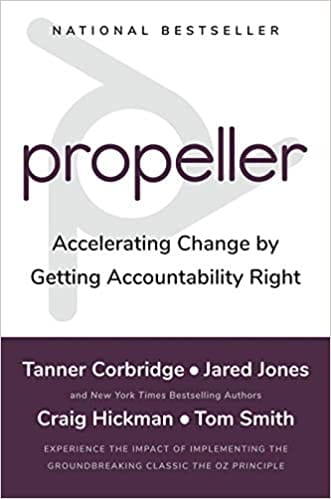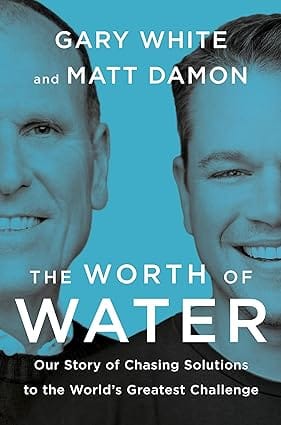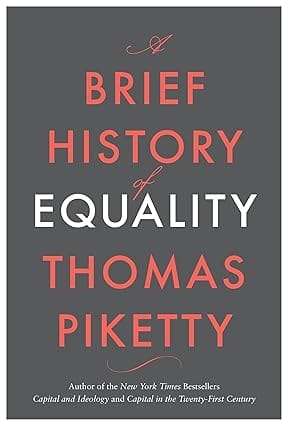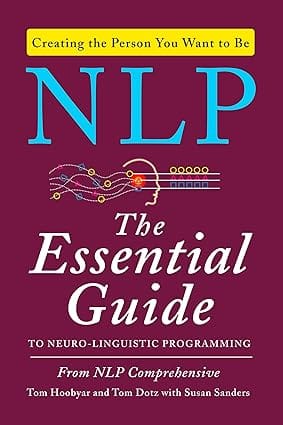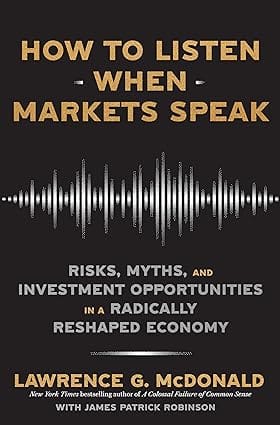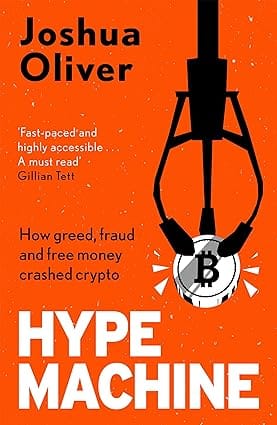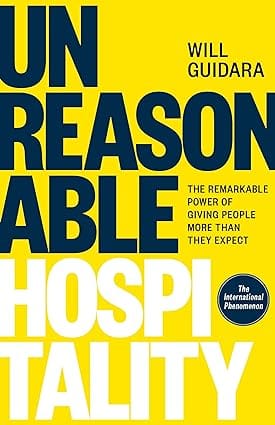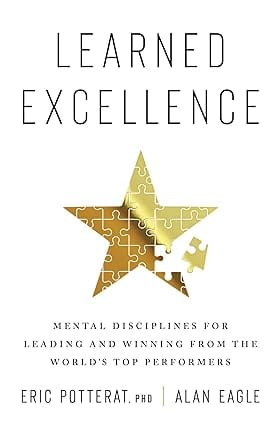WELCOME TO MIDLAND BOOK SHOP!
SHOP FOR
-
Contemporary Fiction
- Contemporary Fiction
-
Children
- Children
-
Comics & Graphic Novels
- Comics & Graphic Novels
-
Non-Fiction
- Non-Fiction
-
Fiction
- Fiction
Shop No.20, Aurobindo Palace Market, Hauz Khas, Near Church +91 9818282497 | 011 26867121
110016
New Delhi
IN
Midland The Book Shop ™
Shop No.20, Aurobindo Palace Market, Hauz Khas, Near Church +91 9818282497 | 011 26867121
New Delhi,
IN
+919871604786
https://www.midlandbookshop.com/s/607fe93d7eafcac1f2c73ea4/6468e33c3c35585403eee048/without-tag-line-480x480.png"
[email protected]
9780525537830
61c1cf07533f82fa017c29ba
Propeller Accelerating Change By Getting Accountability Right
https://www.midlandbookshop.com/s/607fe93d7eafcac1f2c73ea4/61c1cfe7f98e61874df2721a/41jdro863ql-_sx329_bo1-204-203-200_.jpg
9780525537830
The newest addition to Partners In Leadership's accountability series that began with the classic The Oz Principle.
The Oz Principle has sold more than a million copies since it debuted in 1994, establishing it as the go-to reference on workplace accountability throughout the world. By embracing its practical and invaluable advice, tens of thousands of companies have improved their organizational accountability -- the key to achieving and sustaining exceptional results.
Now, the team at Partners In Leadership is applying thirty years of proven success to a whole new concept: Propeller. This book presents a modern take on accountability, while remaining faithful to the elegantly simple premise: When people take personal ownership of their organization's priorities and accept responsibility for their own performance, they become more engaged and perform at a higher level.
With all new examples and stories, Propeller builds on the The Oz Principle's legacy to inspire the next generation of readers to tap the incredible power of personal, team, and organizational accountability.
The Oz Principle has sold more than a million copies since it debuted in 1994, establishing it as the go-to reference on workplace accountability throughout the world. By embracing its practical and invaluable advice, tens of thousands of companies have improved their organizational accountability -- the key to achieving and sustaining exceptional results.
Now, the team at Partners In Leadership is applying thirty years of proven success to a whole new concept: Propeller. This book presents a modern take on accountability, while remaining faithful to the elegantly simple premise: When people take personal ownership of their organization's priorities and accept responsibility for their own performance, they become more engaged and perform at a higher level.
With all new examples and stories, Propeller builds on the The Oz Principle's legacy to inspire the next generation of readers to tap the incredible power of personal, team, and organizational accountability.
About the Author
Tanner Corbridge is a Senior Partner at Partners In Leadership. He has led large scale transformation projects with Fortune 1000 clients across numerous global industries. Clients include over half of the Dow Jones Index companies as well as many smaller organizations.
Jared Jones is a Senior Partner at Partners In Leadership. He has consulted with CEOs and senior leadership teams in some of the most successful organizations in the world. Clients include over half of the Fortune top 50 companies as well as numerous mid-sized companies.
Craig Hickman is Senior Vice President of New Product Development at Partners In Leadership. He has authored or co-authored seventeen books, including Creating Excellence, The Strategy Game, Mind of a Manager Soul of a Leader, and Results Revolution.
Tom Smith is cofounder and board member of Partners in Leadership. His clients include almost half of the Dow Jones Industrial Average Companies and Fortune 50 largest companies in the United States. He has co-authored The Oz Principle, How Did That Happen?, and Change the Game.
Jared Jones is a Senior Partner at Partners In Leadership. He has consulted with CEOs and senior leadership teams in some of the most successful organizations in the world. Clients include over half of the Fortune top 50 companies as well as numerous mid-sized companies.
Craig Hickman is Senior Vice President of New Product Development at Partners In Leadership. He has authored or co-authored seventeen books, including Creating Excellence, The Strategy Game, Mind of a Manager Soul of a Leader, and Results Revolution.
Tom Smith is cofounder and board member of Partners in Leadership. His clients include almost half of the Dow Jones Industrial Average Companies and Fortune 50 largest companies in the United States. He has co-authored The Oz Principle, How Did That Happen?, and Change the Game.
Excerpt. © Reprinted by permission. All rights reserved.
Chapter One
Accountability for Key Results
Applying the Oz Principle, C-Suite to Front Line
"Do you think," he asked, "if I go to the Emerald City with you that Oz would give me some brains?"
-The Wonderful Wizard of Oz, L. Frank Baum
Have you ever looked at the people around you-at work, in your circle of friends, or in your extended family-and wondered why some people are going places with their careers while others aren't? Why do some individuals achieve the results they want while others explain what went wrong along the way? Why do some teams generate a powerful sense of unity and purpose in their work while other teams limp along with never-ending currents of infighting and finger-pointing that suck the morale out of the culture? The answer is accountability.
Many years ago, our firm noticed a pervasive problem in society: a serious and growing lack of accountability. The problem continues to manifest itself in different ways, but there are always common patterns in those differences. For example, we found ourselves constantly interacting with leaders who were tired of the blame game that had taken root in their day-to-day work cultures. They were exhausted by the amount of time and energy they spent in hallway or behind-closed-doors conversations listening to explanations and justifications for lack of performance rather than discussing ideas and solutions for moving forward. In most cases, the people in their organizations had grown numb to the "blame game" that was raging all around. It had metastasized into the organizational narrative. These same leaders would review the current year's annual employee engagement surveys only to find the statements to be a virtual repeat of the previous year's feedback, suggesting a severe lack of individual accountability and an overabundance of blaming. Every one of these leaders also had something else in common: They each knew the solution was to create greater ownership and accountability, but they didn't know how to do it in an effective way. That's why we published the first edition of The Oz Principle in 1994, why we published a second edition in 2004, and why we're now publishing this edition.
In the upcoming pages, we'll explore the accountability paradox-the more we hold people accountable the wrong way, the less accountability we get-and show you how to solve it quickly. We'll also introduce you to a few simple principles and models, honed and proven over thirty years of research, observation, and experiential application within our client organizations. The stories and examples we'll share with you have been chosen from literally thousands of client engagements.
Reframing Accountability
Consider what images spring to mind when you hear the word accountability. Most likely you picture some sort of punishment for a mistake, perhaps someone in authority holding your feet to the fire or hammering you for wrongdoing. The team here at Partners in Leadership has spent decades combating that negative view of accountability. Defining it negatively only disenfranchises people and kills morale. In our view, accountability is not an accounting for misdeeds or a reckoning for one's missteps; it's a powerful motivator to get results. Individuals, teams, and entire organizations can use a positive and engaging approach to accountability to propel them toward whatever goals they must reach. Most important, accountability is not something someone else does to you; it's something you do for yourself, your team, and your organization to help you get better results.
We saw the importance of individuals taking charge of their own results during one memorable consulting engagement. We found ourselves standing on the tail section of a massive military aircraft, looking five stories down to the tarmac as we asked Ray Burick, one of the key leaders at Lockheed Martin Aeronautics, "Why do you need us here?"
Looking down at the plane, he said, "We're behind schedule and over budget. You see those guys working on the wing? They're doing their job and working really hard to do it right. You see those guys working on the fuselage, the main section of the plane where the wing connects? They're working super hard to get everything done that needs to be done. Now move up the fuselage and look at the cockpit and watch the team tackling that amazing bundle of wires feeding the control panel. They are doing everything they feel they are supposed to do to finish their section of the plane."
So, we asked again, "What's the problem?"
Ray continued, "When the wing is handed off to the fuselage team, something inevitably needs to be tweaked or adjusted. So, the fuselage team blames the wing team for not doing its work thoroughly enough. They kick everything back to the wing team and wait for the corrections to be made. Meanwhile, the wing team blames the fuselage team for not following the plans properly and complains that it didn't do what it was asked to do and blames the planning team for not being clear. While this is going on, the work on the plane comes to a halt until someone figures out what to do next. They are all focused on their sections of the plane. I need you guys [Partners in Leadership] because I have to redefine what the job is. I don't need them to take accountability for the wing or cockpit; I need them to take accountability for the entire plane getting out the door on time and under budget."
It was a classic example of the limited, departmental thinking that afflicts organizations, large and small, across the globe. But more so, it epitomized what we call the blame game, a bad habit that poisons the well of problem solving and diverts energy away from delivering the Key Results. "It's not my fault! Someone else screwed up!" or "I'm paying for their mistakes. Hold them accountable." Of course, finger-pointing and playing the helpless victim will never move the needle closer to the results you need, whether you're trying to execute continuous improvement initiatives, inspire innovation, improve your customer's experience, or retain top talent. Achieving any of those results depends more than anything else on getting people to rise above their circumstances and constantly ask, "What else can I do to get the result?" Sadly, too many people pay lip service to accountability while clinging to the old, tired definition of doing something to someone else as a punishment for something that went wrong. Ray was successful in shifting the mind-set on his team at Lockheed Martin. Taking accountability for complete work and achieving the needed results became the watch cry on that team. Within nine months the team was back on schedule and starting to beat their aggressive timelines. Eventually they were operating under budget with increased quality.
In his celebrated book The Wonderful Wizard of Oz, L. Frank Baum got it right. Dorothy and her companions discovered that the all-powerful wizard was a sham and that only they could achieve the outcomes they wanted. It took a long and sometimes dangerous journey down the Yellow Brick Road to learn that crucial life-changing lesson:
You have the power to get the results you want.
What Is the True Meaning of Accountability?
Ask ten managers in almost any organization to define accountability, and you will probably hear ten different definitions. That's a serious problem. When an organization's leaders cannot agree on what accountability means, they certainly can't expect people to agree on how to take it. A number of years ago we began looking at how dictionaries define accountability. Most say something like the following:
Accountability: subject to having to report, explain, or justify; liable, responsible; answerable.
What does that mean? It sounds so cold and excuse oriented. And it doesn't include the most important word of all: results. We'll talk a lot more about results in chapter 2, but for now, let's just say that the most important reason to take accountability is to achieve a desired outcome. The typical dictionary definition falls back on the negative connotation that accountability is a weapon you use when people make mistakes or commit blunders. We don't like that image at all. It's a completely counterproductive way of thinking about accountability that actually invites the sort of excuse making that can keep individuals, teams, and entire organizations from getting the results they need. We much prefer thinking of accountability as a tremendously positive force, not something someone else does to punish you, but something you do for yourself in order to get better results.
In the pages ahead, we will use The Oz Principle definition of accountability:
Accountability: A personal choice to rise above one's circumstances and demonstrate the ownership necessary for achieving desired results.
This definition suggests that accountability begins with a decision to do something to create a better outcome. It urges the person taking accountability to skirt the temptation to fall victim to difficult circumstances and, instead, work toward a better outcome. No one gives accountability to you; you take it. When you take it, you put yourself in charge of the outcomes you need to deliver. Ask any leader in any organization how they got ahead in their career, and you'll seldom hear them say, "I was held accountable by the people above me." You'll more likely hear something along the lines of "I made a decision early on that my future rested in my own hands and that only I could move myself forward by working effectively with others to deliver the needed results." That's the lesson Dorothy and her companions learned as they went on a journey of self-discovery that led them to the remarkable conclusion that they had held the keys to success in their own hands all along.
We have found that when you classify organizations according to their approach to accountability, they fall into one of two categories: those where accountability means justification and punishment and those where it means taking charge of your role in getting results for yourself, your team, and your organization. In the former settings, people think in terms of holding others accountable for what has happened; in the latter, people believe in holding themselves accountable for what happens next. Consider the stark differences:
A Culture of Justification and Punishment
The blame game flourishes between individuals and departments.
A lack of personal initiative and active engagement exists.
People tend to duck and hide when they see a problem.
Fear of reprisal for speaking candidly or making the wrong decision keeps people from talking honestly about problems.
People avoid taking risks because making the wrong decision will get them in trouble.
People feel threatened by the talents and achievement of others.
A Culture of Accountability for Results
People embrace personal responsibility and refuse to blame others when something goes wrong.
Creativity and high levels of energy permeate the culture.
People actively attack every problem they see.
Giving and receiving candid feedback becomes a way of life.
A failed risk motivates people to learn a valuable lesson from what happened.
People are not threatened by the talents of others but instead leverage them appropriately to problem solve.
Which culture would you prefer? Whether you sit in the C-Suite or work on the shop floor, playing the blame game will get you nowhere. Only by taking accountability can you expect to achieve what matters most to you, your team, and your organization.
Accountability Skills
If you ask one hundred managers across Fortune 100 companies, "Do you see a need for greater accountability and ownership in your organization today?," 100 percent will likely say, "Absolutely!" If you follow up that question with another question, "Are you personally accountable?," again, 100 percent will likely say, "Yes, of course!" No one will ever say, "I'm a train wreck. Don't count on me to deliver anything on time." This paradox presents one of the ironies that surround the idea of accountability. Most people want to see more of it, yet few see the need to recognize that they need to take more of it. No raindrop ever feels responsible for the flood though each contributes to the problem. The same holds true in organizations, large and small. Each and every rejection of accountability contributes to a whole culture of justification and punishment.
Three basic skills will help you harness the power of accountability:
1.Understand how to accelerate better results through the Steps to Accountability model.
2.Apply the model to yourself.
3.Adopt the Common Language of Accountability.
Let's look closely at these three fundamental skills.
1. Understand the Steps to Accountability Model
People are well intentioned, but we all have blind spots. Let's say Joelle sees Jackson fail to ship enough of the lightbulbs they produce to a critical customer who depends upon the bulbs to make their headlights. She thinks, "What a disaster. The team's going to pay for that." Notice that Jackson is judging Joelle's actions. She makes a mistake, but all the while he's thinking, "I would never do that." Jackson judges himself based on his own intention. Jackson would never intentionally drop the ball with a key customer. But what happens when he does drop the ball? He's tempted to say, "The order came in too late in the day for us to ship it." Paradoxically, Jackson expects Joelle to be held accountable but expects himself to be let off the hook if he makes a similar mistake. When Joelle does it, she's the problem. When he does it, he's a victim of unfortunate circumstances. In short, people tend to judge other people based on their actions yet judge themselves according to their own good intentions. When we talk about taking accountability, we urge you to recognize and then abandon that self-deception. It may not be your fault, but the results we end up achieving in our organization depend greatly on what you do next, and that depends on what you do given the reality of the current circumstances.
Accountability never sleeps.
To help our clients remember the process of traveling from victimhood to greater accountability for results, we developed the Steps to Accountability model, which captures our process in a single glance:
The Steps to Accountability
Let's start by looking at the Line that separates the blame game from the Steps to Accountability. When it comes to rising above our circumstances and taking charge of what happens next, you need to move from Below the Line to Above the Line. Below the Line, you focus on what you can't control, playing the victim of circumstances, ignoring and denying the problem, pointing your finger at others, covering your tail in order to get yourself off the hook, claiming that it's not your job, acting confused and expecting someone else to tell you what to do, or just waiting to see if the issue will magically resolve itself. Above the Line, you focus on what you can control, you assume accountability for resolving the issue by taking four sure steps toward getting the right result: You See It, Own It, Solve It, and Do It. Chapters 3, 4, 5, and 6 will develop each of these steps more thoroughly.
Accountability for Key Results
Applying the Oz Principle, C-Suite to Front Line
"Do you think," he asked, "if I go to the Emerald City with you that Oz would give me some brains?"
-The Wonderful Wizard of Oz, L. Frank Baum
Have you ever looked at the people around you-at work, in your circle of friends, or in your extended family-and wondered why some people are going places with their careers while others aren't? Why do some individuals achieve the results they want while others explain what went wrong along the way? Why do some teams generate a powerful sense of unity and purpose in their work while other teams limp along with never-ending currents of infighting and finger-pointing that suck the morale out of the culture? The answer is accountability.
Many years ago, our firm noticed a pervasive problem in society: a serious and growing lack of accountability. The problem continues to manifest itself in different ways, but there are always common patterns in those differences. For example, we found ourselves constantly interacting with leaders who were tired of the blame game that had taken root in their day-to-day work cultures. They were exhausted by the amount of time and energy they spent in hallway or behind-closed-doors conversations listening to explanations and justifications for lack of performance rather than discussing ideas and solutions for moving forward. In most cases, the people in their organizations had grown numb to the "blame game" that was raging all around. It had metastasized into the organizational narrative. These same leaders would review the current year's annual employee engagement surveys only to find the statements to be a virtual repeat of the previous year's feedback, suggesting a severe lack of individual accountability and an overabundance of blaming. Every one of these leaders also had something else in common: They each knew the solution was to create greater ownership and accountability, but they didn't know how to do it in an effective way. That's why we published the first edition of The Oz Principle in 1994, why we published a second edition in 2004, and why we're now publishing this edition.
In the upcoming pages, we'll explore the accountability paradox-the more we hold people accountable the wrong way, the less accountability we get-and show you how to solve it quickly. We'll also introduce you to a few simple principles and models, honed and proven over thirty years of research, observation, and experiential application within our client organizations. The stories and examples we'll share with you have been chosen from literally thousands of client engagements.
Reframing Accountability
Consider what images spring to mind when you hear the word accountability. Most likely you picture some sort of punishment for a mistake, perhaps someone in authority holding your feet to the fire or hammering you for wrongdoing. The team here at Partners in Leadership has spent decades combating that negative view of accountability. Defining it negatively only disenfranchises people and kills morale. In our view, accountability is not an accounting for misdeeds or a reckoning for one's missteps; it's a powerful motivator to get results. Individuals, teams, and entire organizations can use a positive and engaging approach to accountability to propel them toward whatever goals they must reach. Most important, accountability is not something someone else does to you; it's something you do for yourself, your team, and your organization to help you get better results.
We saw the importance of individuals taking charge of their own results during one memorable consulting engagement. We found ourselves standing on the tail section of a massive military aircraft, looking five stories down to the tarmac as we asked Ray Burick, one of the key leaders at Lockheed Martin Aeronautics, "Why do you need us here?"
Looking down at the plane, he said, "We're behind schedule and over budget. You see those guys working on the wing? They're doing their job and working really hard to do it right. You see those guys working on the fuselage, the main section of the plane where the wing connects? They're working super hard to get everything done that needs to be done. Now move up the fuselage and look at the cockpit and watch the team tackling that amazing bundle of wires feeding the control panel. They are doing everything they feel they are supposed to do to finish their section of the plane."
So, we asked again, "What's the problem?"
Ray continued, "When the wing is handed off to the fuselage team, something inevitably needs to be tweaked or adjusted. So, the fuselage team blames the wing team for not doing its work thoroughly enough. They kick everything back to the wing team and wait for the corrections to be made. Meanwhile, the wing team blames the fuselage team for not following the plans properly and complains that it didn't do what it was asked to do and blames the planning team for not being clear. While this is going on, the work on the plane comes to a halt until someone figures out what to do next. They are all focused on their sections of the plane. I need you guys [Partners in Leadership] because I have to redefine what the job is. I don't need them to take accountability for the wing or cockpit; I need them to take accountability for the entire plane getting out the door on time and under budget."
It was a classic example of the limited, departmental thinking that afflicts organizations, large and small, across the globe. But more so, it epitomized what we call the blame game, a bad habit that poisons the well of problem solving and diverts energy away from delivering the Key Results. "It's not my fault! Someone else screwed up!" or "I'm paying for their mistakes. Hold them accountable." Of course, finger-pointing and playing the helpless victim will never move the needle closer to the results you need, whether you're trying to execute continuous improvement initiatives, inspire innovation, improve your customer's experience, or retain top talent. Achieving any of those results depends more than anything else on getting people to rise above their circumstances and constantly ask, "What else can I do to get the result?" Sadly, too many people pay lip service to accountability while clinging to the old, tired definition of doing something to someone else as a punishment for something that went wrong. Ray was successful in shifting the mind-set on his team at Lockheed Martin. Taking accountability for complete work and achieving the needed results became the watch cry on that team. Within nine months the team was back on schedule and starting to beat their aggressive timelines. Eventually they were operating under budget with increased quality.
In his celebrated book The Wonderful Wizard of Oz, L. Frank Baum got it right. Dorothy and her companions discovered that the all-powerful wizard was a sham and that only they could achieve the outcomes they wanted. It took a long and sometimes dangerous journey down the Yellow Brick Road to learn that crucial life-changing lesson:
You have the power to get the results you want.
What Is the True Meaning of Accountability?
Ask ten managers in almost any organization to define accountability, and you will probably hear ten different definitions. That's a serious problem. When an organization's leaders cannot agree on what accountability means, they certainly can't expect people to agree on how to take it. A number of years ago we began looking at how dictionaries define accountability. Most say something like the following:
Accountability: subject to having to report, explain, or justify; liable, responsible; answerable.
What does that mean? It sounds so cold and excuse oriented. And it doesn't include the most important word of all: results. We'll talk a lot more about results in chapter 2, but for now, let's just say that the most important reason to take accountability is to achieve a desired outcome. The typical dictionary definition falls back on the negative connotation that accountability is a weapon you use when people make mistakes or commit blunders. We don't like that image at all. It's a completely counterproductive way of thinking about accountability that actually invites the sort of excuse making that can keep individuals, teams, and entire organizations from getting the results they need. We much prefer thinking of accountability as a tremendously positive force, not something someone else does to punish you, but something you do for yourself in order to get better results.
In the pages ahead, we will use The Oz Principle definition of accountability:
Accountability: A personal choice to rise above one's circumstances and demonstrate the ownership necessary for achieving desired results.
This definition suggests that accountability begins with a decision to do something to create a better outcome. It urges the person taking accountability to skirt the temptation to fall victim to difficult circumstances and, instead, work toward a better outcome. No one gives accountability to you; you take it. When you take it, you put yourself in charge of the outcomes you need to deliver. Ask any leader in any organization how they got ahead in their career, and you'll seldom hear them say, "I was held accountable by the people above me." You'll more likely hear something along the lines of "I made a decision early on that my future rested in my own hands and that only I could move myself forward by working effectively with others to deliver the needed results." That's the lesson Dorothy and her companions learned as they went on a journey of self-discovery that led them to the remarkable conclusion that they had held the keys to success in their own hands all along.
We have found that when you classify organizations according to their approach to accountability, they fall into one of two categories: those where accountability means justification and punishment and those where it means taking charge of your role in getting results for yourself, your team, and your organization. In the former settings, people think in terms of holding others accountable for what has happened; in the latter, people believe in holding themselves accountable for what happens next. Consider the stark differences:
A Culture of Justification and Punishment
The blame game flourishes between individuals and departments.
A lack of personal initiative and active engagement exists.
People tend to duck and hide when they see a problem.
Fear of reprisal for speaking candidly or making the wrong decision keeps people from talking honestly about problems.
People avoid taking risks because making the wrong decision will get them in trouble.
People feel threatened by the talents and achievement of others.
A Culture of Accountability for Results
People embrace personal responsibility and refuse to blame others when something goes wrong.
Creativity and high levels of energy permeate the culture.
People actively attack every problem they see.
Giving and receiving candid feedback becomes a way of life.
A failed risk motivates people to learn a valuable lesson from what happened.
People are not threatened by the talents of others but instead leverage them appropriately to problem solve.
Which culture would you prefer? Whether you sit in the C-Suite or work on the shop floor, playing the blame game will get you nowhere. Only by taking accountability can you expect to achieve what matters most to you, your team, and your organization.
Accountability Skills
If you ask one hundred managers across Fortune 100 companies, "Do you see a need for greater accountability and ownership in your organization today?," 100 percent will likely say, "Absolutely!" If you follow up that question with another question, "Are you personally accountable?," again, 100 percent will likely say, "Yes, of course!" No one will ever say, "I'm a train wreck. Don't count on me to deliver anything on time." This paradox presents one of the ironies that surround the idea of accountability. Most people want to see more of it, yet few see the need to recognize that they need to take more of it. No raindrop ever feels responsible for the flood though each contributes to the problem. The same holds true in organizations, large and small. Each and every rejection of accountability contributes to a whole culture of justification and punishment.
Three basic skills will help you harness the power of accountability:
1.Understand how to accelerate better results through the Steps to Accountability model.
2.Apply the model to yourself.
3.Adopt the Common Language of Accountability.
Let's look closely at these three fundamental skills.
1. Understand the Steps to Accountability Model
People are well intentioned, but we all have blind spots. Let's say Joelle sees Jackson fail to ship enough of the lightbulbs they produce to a critical customer who depends upon the bulbs to make their headlights. She thinks, "What a disaster. The team's going to pay for that." Notice that Jackson is judging Joelle's actions. She makes a mistake, but all the while he's thinking, "I would never do that." Jackson judges himself based on his own intention. Jackson would never intentionally drop the ball with a key customer. But what happens when he does drop the ball? He's tempted to say, "The order came in too late in the day for us to ship it." Paradoxically, Jackson expects Joelle to be held accountable but expects himself to be let off the hook if he makes a similar mistake. When Joelle does it, she's the problem. When he does it, he's a victim of unfortunate circumstances. In short, people tend to judge other people based on their actions yet judge themselves according to their own good intentions. When we talk about taking accountability, we urge you to recognize and then abandon that self-deception. It may not be your fault, but the results we end up achieving in our organization depend greatly on what you do next, and that depends on what you do given the reality of the current circumstances.
Accountability never sleeps.
To help our clients remember the process of traveling from victimhood to greater accountability for results, we developed the Steps to Accountability model, which captures our process in a single glance:
The Steps to Accountability
Let's start by looking at the Line that separates the blame game from the Steps to Accountability. When it comes to rising above our circumstances and taking charge of what happens next, you need to move from Below the Line to Above the Line. Below the Line, you focus on what you can't control, playing the victim of circumstances, ignoring and denying the problem, pointing your finger at others, covering your tail in order to get yourself off the hook, claiming that it's not your job, acting confused and expecting someone else to tell you what to do, or just waiting to see if the issue will magically resolve itself. Above the Line, you focus on what you can control, you assume accountability for resolving the issue by taking four sure steps toward getting the right result: You See It, Own It, Solve It, and Do It. Chapters 3, 4, 5, and 6 will develop each of these steps more thoroughly.
in stock
INR
559
1
1
Email ID already exists!
Your Current password is incorrect
Password Updated Successfully
Thanks for your Feedback
- Home
- Business And Economics
- Propeller Accelerating Change By Getting Accountability Right
Propeller Accelerating Change By Getting Accountability Right
ISBN:
9780525537830
₹559
₹699
(20% OFF)
SIZE GUIDE
Sold By:
Hauz Khas - Aurobindo Market
Details
- ISBN: 9780525537830
- Author: Tanner Corbridge Jared Jones Craig Hickman Tom Smith
- Publisher: Portfolio
- Pages: 224
- Format: Hardback
Book Description
The newest addition to Partners In Leadership's accountability series that began with the classic The Oz Principle.
The Oz Principle has sold more than a million copies since it debuted in 1994, establishing it as the go-to reference on workplace accountability throughout the world. By embracing its practical and invaluable advice, tens of thousands of companies have improved their organizational accountability -- the key to achieving and sustaining exceptional results.
Now, the team at Partners In Leadership is applying thirty years of proven success to a whole new concept: Propeller. This book presents a modern take on accountability, while remaining faithful to the elegantly simple premise: When people take personal ownership of their organization's priorities and accept responsibility for their own performance, they become more engaged and perform at a higher level.
With all new examples and stories, Propeller builds on the The Oz Principle's legacy to inspire the next generation of readers to tap the incredible power of personal, team, and organizational accountability.
The Oz Principle has sold more than a million copies since it debuted in 1994, establishing it as the go-to reference on workplace accountability throughout the world. By embracing its practical and invaluable advice, tens of thousands of companies have improved their organizational accountability -- the key to achieving and sustaining exceptional results.
Now, the team at Partners In Leadership is applying thirty years of proven success to a whole new concept: Propeller. This book presents a modern take on accountability, while remaining faithful to the elegantly simple premise: When people take personal ownership of their organization's priorities and accept responsibility for their own performance, they become more engaged and perform at a higher level.
With all new examples and stories, Propeller builds on the The Oz Principle's legacy to inspire the next generation of readers to tap the incredible power of personal, team, and organizational accountability.
About the Author
Tanner Corbridge is a Senior Partner at Partners In Leadership. He has led large scale transformation projects with Fortune 1000 clients across numerous global industries. Clients include over half of the Dow Jones Index companies as well as many smaller organizations.
Jared Jones is a Senior Partner at Partners In Leadership. He has consulted with CEOs and senior leadership teams in some of the most successful organizations in the world. Clients include over half of the Fortune top 50 companies as well as numerous mid-sized companies.
Craig Hickman is Senior Vice President of New Product Development at Partners In Leadership. He has authored or co-authored seventeen books, including Creating Excellence, The Strategy Game, Mind of a Manager Soul of a Leader, and Results Revolution.
Tom Smith is cofounder and board member of Partners in Leadership. His clients include almost half of the Dow Jones Industrial Average Companies and Fortune 50 largest companies in the United States. He has co-authored The Oz Principle, How Did That Happen?, and Change the Game.
Jared Jones is a Senior Partner at Partners In Leadership. He has consulted with CEOs and senior leadership teams in some of the most successful organizations in the world. Clients include over half of the Fortune top 50 companies as well as numerous mid-sized companies.
Craig Hickman is Senior Vice President of New Product Development at Partners In Leadership. He has authored or co-authored seventeen books, including Creating Excellence, The Strategy Game, Mind of a Manager Soul of a Leader, and Results Revolution.
Tom Smith is cofounder and board member of Partners in Leadership. His clients include almost half of the Dow Jones Industrial Average Companies and Fortune 50 largest companies in the United States. He has co-authored The Oz Principle, How Did That Happen?, and Change the Game.
Excerpt. © Reprinted by permission. All rights reserved.
Chapter One
Accountability for Key Results
Applying the Oz Principle, C-Suite to Front Line
"Do you think," he asked, "if I go to the Emerald City with you that Oz would give me some brains?"
-The Wonderful Wizard of Oz, L. Frank Baum
Have you ever looked at the people around you-at work, in your circle of friends, or in your extended family-and wondered why some people are going places with their careers while others aren't? Why do some individuals achieve the results they want while others explain what went wrong along the way? Why do some teams generate a powerful sense of unity and purpose in their work while other teams limp along with never-ending currents of infighting and finger-pointing that suck the morale out of the culture? The answer is accountability.
Many years ago, our firm noticed a pervasive problem in society: a serious and growing lack of accountability. The problem continues to manifest itself in different ways, but there are always common patterns in those differences. For example, we found ourselves constantly interacting with leaders who were tired of the blame game that had taken root in their day-to-day work cultures. They were exhausted by the amount of time and energy they spent in hallway or behind-closed-doors conversations listening to explanations and justifications for lack of performance rather than discussing ideas and solutions for moving forward. In most cases, the people in their organizations had grown numb to the "blame game" that was raging all around. It had metastasized into the organizational narrative. These same leaders would review the current year's annual employee engagement surveys only to find the statements to be a virtual repeat of the previous year's feedback, suggesting a severe lack of individual accountability and an overabundance of blaming. Every one of these leaders also had something else in common: They each knew the solution was to create greater ownership and accountability, but they didn't know how to do it in an effective way. That's why we published the first edition of The Oz Principle in 1994, why we published a second edition in 2004, and why we're now publishing this edition.
In the upcoming pages, we'll explore the accountability paradox-the more we hold people accountable the wrong way, the less accountability we get-and show you how to solve it quickly. We'll also introduce you to a few simple principles and models, honed and proven over thirty years of research, observation, and experiential application within our client organizations. The stories and examples we'll share with you have been chosen from literally thousands of client engagements.
Reframing Accountability
Consider what images spring to mind when you hear the word accountability. Most likely you picture some sort of punishment for a mistake, perhaps someone in authority holding your feet to the fire or hammering you for wrongdoing. The team here at Partners in Leadership has spent decades combating that negative view of accountability. Defining it negatively only disenfranchises people and kills morale. In our view, accountability is not an accounting for misdeeds or a reckoning for one's missteps; it's a powerful motivator to get results. Individuals, teams, and entire organizations can use a positive and engaging approach to accountability to propel them toward whatever goals they must reach. Most important, accountability is not something someone else does to you; it's something you do for yourself, your team, and your organization to help you get better results.
We saw the importance of individuals taking charge of their own results during one memorable consulting engagement. We found ourselves standing on the tail section of a massive military aircraft, looking five stories down to the tarmac as we asked Ray Burick, one of the key leaders at Lockheed Martin Aeronautics, "Why do you need us here?"
Looking down at the plane, he said, "We're behind schedule and over budget. You see those guys working on the wing? They're doing their job and working really hard to do it right. You see those guys working on the fuselage, the main section of the plane where the wing connects? They're working super hard to get everything done that needs to be done. Now move up the fuselage and look at the cockpit and watch the team tackling that amazing bundle of wires feeding the control panel. They are doing everything they feel they are supposed to do to finish their section of the plane."
So, we asked again, "What's the problem?"
Ray continued, "When the wing is handed off to the fuselage team, something inevitably needs to be tweaked or adjusted. So, the fuselage team blames the wing team for not doing its work thoroughly enough. They kick everything back to the wing team and wait for the corrections to be made. Meanwhile, the wing team blames the fuselage team for not following the plans properly and complains that it didn't do what it was asked to do and blames the planning team for not being clear. While this is going on, the work on the plane comes to a halt until someone figures out what to do next. They are all focused on their sections of the plane. I need you guys [Partners in Leadership] because I have to redefine what the job is. I don't need them to take accountability for the wing or cockpit; I need them to take accountability for the entire plane getting out the door on time and under budget."
It was a classic example of the limited, departmental thinking that afflicts organizations, large and small, across the globe. But more so, it epitomized what we call the blame game, a bad habit that poisons the well of problem solving and diverts energy away from delivering the Key Results. "It's not my fault! Someone else screwed up!" or "I'm paying for their mistakes. Hold them accountable." Of course, finger-pointing and playing the helpless victim will never move the needle closer to the results you need, whether you're trying to execute continuous improvement initiatives, inspire innovation, improve your customer's experience, or retain top talent. Achieving any of those results depends more than anything else on getting people to rise above their circumstances and constantly ask, "What else can I do to get the result?" Sadly, too many people pay lip service to accountability while clinging to the old, tired definition of doing something to someone else as a punishment for something that went wrong. Ray was successful in shifting the mind-set on his team at Lockheed Martin. Taking accountability for complete work and achieving the needed results became the watch cry on that team. Within nine months the team was back on schedule and starting to beat their aggressive timelines. Eventually they were operating under budget with increased quality.
In his celebrated book The Wonderful Wizard of Oz, L. Frank Baum got it right. Dorothy and her companions discovered that the all-powerful wizard was a sham and that only they could achieve the outcomes they wanted. It took a long and sometimes dangerous journey down the Yellow Brick Road to learn that crucial life-changing lesson:
You have the power to get the results you want.
What Is the True Meaning of Accountability?
Ask ten managers in almost any organization to define accountability, and you will probably hear ten different definitions. That's a serious problem. When an organization's leaders cannot agree on what accountability means, they certainly can't expect people to agree on how to take it. A number of years ago we began looking at how dictionaries define accountability. Most say something like the following:
Accountability: subject to having to report, explain, or justify; liable, responsible; answerable.
What does that mean? It sounds so cold and excuse oriented. And it doesn't include the most important word of all: results. We'll talk a lot more about results in chapter 2, but for now, let's just say that the most important reason to take accountability is to achieve a desired outcome. The typical dictionary definition falls back on the negative connotation that accountability is a weapon you use when people make mistakes or commit blunders. We don't like that image at all. It's a completely counterproductive way of thinking about accountability that actually invites the sort of excuse making that can keep individuals, teams, and entire organizations from getting the results they need. We much prefer thinking of accountability as a tremendously positive force, not something someone else does to punish you, but something you do for yourself in order to get better results.
In the pages ahead, we will use The Oz Principle definition of accountability:
Accountability: A personal choice to rise above one's circumstances and demonstrate the ownership necessary for achieving desired results.
This definition suggests that accountability begins with a decision to do something to create a better outcome. It urges the person taking accountability to skirt the temptation to fall victim to difficult circumstances and, instead, work toward a better outcome. No one gives accountability to you; you take it. When you take it, you put yourself in charge of the outcomes you need to deliver. Ask any leader in any organization how they got ahead in their career, and you'll seldom hear them say, "I was held accountable by the people above me." You'll more likely hear something along the lines of "I made a decision early on that my future rested in my own hands and that only I could move myself forward by working effectively with others to deliver the needed results." That's the lesson Dorothy and her companions learned as they went on a journey of self-discovery that led them to the remarkable conclusion that they had held the keys to success in their own hands all along.
We have found that when you classify organizations according to their approach to accountability, they fall into one of two categories: those where accountability means justification and punishment and those where it means taking charge of your role in getting results for yourself, your team, and your organization. In the former settings, people think in terms of holding others accountable for what has happened; in the latter, people believe in holding themselves accountable for what happens next. Consider the stark differences:
A Culture of Justification and Punishment
The blame game flourishes between individuals and departments.
A lack of personal initiative and active engagement exists.
People tend to duck and hide when they see a problem.
Fear of reprisal for speaking candidly or making the wrong decision keeps people from talking honestly about problems.
People avoid taking risks because making the wrong decision will get them in trouble.
People feel threatened by the talents and achievement of others.
A Culture of Accountability for Results
People embrace personal responsibility and refuse to blame others when something goes wrong.
Creativity and high levels of energy permeate the culture.
People actively attack every problem they see.
Giving and receiving candid feedback becomes a way of life.
A failed risk motivates people to learn a valuable lesson from what happened.
People are not threatened by the talents of others but instead leverage them appropriately to problem solve.
Which culture would you prefer? Whether you sit in the C-Suite or work on the shop floor, playing the blame game will get you nowhere. Only by taking accountability can you expect to achieve what matters most to you, your team, and your organization.
Accountability Skills
If you ask one hundred managers across Fortune 100 companies, "Do you see a need for greater accountability and ownership in your organization today?," 100 percent will likely say, "Absolutely!" If you follow up that question with another question, "Are you personally accountable?," again, 100 percent will likely say, "Yes, of course!" No one will ever say, "I'm a train wreck. Don't count on me to deliver anything on time." This paradox presents one of the ironies that surround the idea of accountability. Most people want to see more of it, yet few see the need to recognize that they need to take more of it. No raindrop ever feels responsible for the flood though each contributes to the problem. The same holds true in organizations, large and small. Each and every rejection of accountability contributes to a whole culture of justification and punishment.
Three basic skills will help you harness the power of accountability:
1.Understand how to accelerate better results through the Steps to Accountability model.
2.Apply the model to yourself.
3.Adopt the Common Language of Accountability.
Let's look closely at these three fundamental skills.
1. Understand the Steps to Accountability Model
People are well intentioned, but we all have blind spots. Let's say Joelle sees Jackson fail to ship enough of the lightbulbs they produce to a critical customer who depends upon the bulbs to make their headlights. She thinks, "What a disaster. The team's going to pay for that." Notice that Jackson is judging Joelle's actions. She makes a mistake, but all the while he's thinking, "I would never do that." Jackson judges himself based on his own intention. Jackson would never intentionally drop the ball with a key customer. But what happens when he does drop the ball? He's tempted to say, "The order came in too late in the day for us to ship it." Paradoxically, Jackson expects Joelle to be held accountable but expects himself to be let off the hook if he makes a similar mistake. When Joelle does it, she's the problem. When he does it, he's a victim of unfortunate circumstances. In short, people tend to judge other people based on their actions yet judge themselves according to their own good intentions. When we talk about taking accountability, we urge you to recognize and then abandon that self-deception. It may not be your fault, but the results we end up achieving in our organization depend greatly on what you do next, and that depends on what you do given the reality of the current circumstances.
Accountability never sleeps.
To help our clients remember the process of traveling from victimhood to greater accountability for results, we developed the Steps to Accountability model, which captures our process in a single glance:
The Steps to Accountability
Let's start by looking at the Line that separates the blame game from the Steps to Accountability. When it comes to rising above our circumstances and taking charge of what happens next, you need to move from Below the Line to Above the Line. Below the Line, you focus on what you can't control, playing the victim of circumstances, ignoring and denying the problem, pointing your finger at others, covering your tail in order to get yourself off the hook, claiming that it's not your job, acting confused and expecting someone else to tell you what to do, or just waiting to see if the issue will magically resolve itself. Above the Line, you focus on what you can control, you assume accountability for resolving the issue by taking four sure steps toward getting the right result: You See It, Own It, Solve It, and Do It. Chapters 3, 4, 5, and 6 will develop each of these steps more thoroughly.
Accountability for Key Results
Applying the Oz Principle, C-Suite to Front Line
"Do you think," he asked, "if I go to the Emerald City with you that Oz would give me some brains?"
-The Wonderful Wizard of Oz, L. Frank Baum
Have you ever looked at the people around you-at work, in your circle of friends, or in your extended family-and wondered why some people are going places with their careers while others aren't? Why do some individuals achieve the results they want while others explain what went wrong along the way? Why do some teams generate a powerful sense of unity and purpose in their work while other teams limp along with never-ending currents of infighting and finger-pointing that suck the morale out of the culture? The answer is accountability.
Many years ago, our firm noticed a pervasive problem in society: a serious and growing lack of accountability. The problem continues to manifest itself in different ways, but there are always common patterns in those differences. For example, we found ourselves constantly interacting with leaders who were tired of the blame game that had taken root in their day-to-day work cultures. They were exhausted by the amount of time and energy they spent in hallway or behind-closed-doors conversations listening to explanations and justifications for lack of performance rather than discussing ideas and solutions for moving forward. In most cases, the people in their organizations had grown numb to the "blame game" that was raging all around. It had metastasized into the organizational narrative. These same leaders would review the current year's annual employee engagement surveys only to find the statements to be a virtual repeat of the previous year's feedback, suggesting a severe lack of individual accountability and an overabundance of blaming. Every one of these leaders also had something else in common: They each knew the solution was to create greater ownership and accountability, but they didn't know how to do it in an effective way. That's why we published the first edition of The Oz Principle in 1994, why we published a second edition in 2004, and why we're now publishing this edition.
In the upcoming pages, we'll explore the accountability paradox-the more we hold people accountable the wrong way, the less accountability we get-and show you how to solve it quickly. We'll also introduce you to a few simple principles and models, honed and proven over thirty years of research, observation, and experiential application within our client organizations. The stories and examples we'll share with you have been chosen from literally thousands of client engagements.
Reframing Accountability
Consider what images spring to mind when you hear the word accountability. Most likely you picture some sort of punishment for a mistake, perhaps someone in authority holding your feet to the fire or hammering you for wrongdoing. The team here at Partners in Leadership has spent decades combating that negative view of accountability. Defining it negatively only disenfranchises people and kills morale. In our view, accountability is not an accounting for misdeeds or a reckoning for one's missteps; it's a powerful motivator to get results. Individuals, teams, and entire organizations can use a positive and engaging approach to accountability to propel them toward whatever goals they must reach. Most important, accountability is not something someone else does to you; it's something you do for yourself, your team, and your organization to help you get better results.
We saw the importance of individuals taking charge of their own results during one memorable consulting engagement. We found ourselves standing on the tail section of a massive military aircraft, looking five stories down to the tarmac as we asked Ray Burick, one of the key leaders at Lockheed Martin Aeronautics, "Why do you need us here?"
Looking down at the plane, he said, "We're behind schedule and over budget. You see those guys working on the wing? They're doing their job and working really hard to do it right. You see those guys working on the fuselage, the main section of the plane where the wing connects? They're working super hard to get everything done that needs to be done. Now move up the fuselage and look at the cockpit and watch the team tackling that amazing bundle of wires feeding the control panel. They are doing everything they feel they are supposed to do to finish their section of the plane."
So, we asked again, "What's the problem?"
Ray continued, "When the wing is handed off to the fuselage team, something inevitably needs to be tweaked or adjusted. So, the fuselage team blames the wing team for not doing its work thoroughly enough. They kick everything back to the wing team and wait for the corrections to be made. Meanwhile, the wing team blames the fuselage team for not following the plans properly and complains that it didn't do what it was asked to do and blames the planning team for not being clear. While this is going on, the work on the plane comes to a halt until someone figures out what to do next. They are all focused on their sections of the plane. I need you guys [Partners in Leadership] because I have to redefine what the job is. I don't need them to take accountability for the wing or cockpit; I need them to take accountability for the entire plane getting out the door on time and under budget."
It was a classic example of the limited, departmental thinking that afflicts organizations, large and small, across the globe. But more so, it epitomized what we call the blame game, a bad habit that poisons the well of problem solving and diverts energy away from delivering the Key Results. "It's not my fault! Someone else screwed up!" or "I'm paying for their mistakes. Hold them accountable." Of course, finger-pointing and playing the helpless victim will never move the needle closer to the results you need, whether you're trying to execute continuous improvement initiatives, inspire innovation, improve your customer's experience, or retain top talent. Achieving any of those results depends more than anything else on getting people to rise above their circumstances and constantly ask, "What else can I do to get the result?" Sadly, too many people pay lip service to accountability while clinging to the old, tired definition of doing something to someone else as a punishment for something that went wrong. Ray was successful in shifting the mind-set on his team at Lockheed Martin. Taking accountability for complete work and achieving the needed results became the watch cry on that team. Within nine months the team was back on schedule and starting to beat their aggressive timelines. Eventually they were operating under budget with increased quality.
In his celebrated book The Wonderful Wizard of Oz, L. Frank Baum got it right. Dorothy and her companions discovered that the all-powerful wizard was a sham and that only they could achieve the outcomes they wanted. It took a long and sometimes dangerous journey down the Yellow Brick Road to learn that crucial life-changing lesson:
You have the power to get the results you want.
What Is the True Meaning of Accountability?
Ask ten managers in almost any organization to define accountability, and you will probably hear ten different definitions. That's a serious problem. When an organization's leaders cannot agree on what accountability means, they certainly can't expect people to agree on how to take it. A number of years ago we began looking at how dictionaries define accountability. Most say something like the following:
Accountability: subject to having to report, explain, or justify; liable, responsible; answerable.
What does that mean? It sounds so cold and excuse oriented. And it doesn't include the most important word of all: results. We'll talk a lot more about results in chapter 2, but for now, let's just say that the most important reason to take accountability is to achieve a desired outcome. The typical dictionary definition falls back on the negative connotation that accountability is a weapon you use when people make mistakes or commit blunders. We don't like that image at all. It's a completely counterproductive way of thinking about accountability that actually invites the sort of excuse making that can keep individuals, teams, and entire organizations from getting the results they need. We much prefer thinking of accountability as a tremendously positive force, not something someone else does to punish you, but something you do for yourself in order to get better results.
In the pages ahead, we will use The Oz Principle definition of accountability:
Accountability: A personal choice to rise above one's circumstances and demonstrate the ownership necessary for achieving desired results.
This definition suggests that accountability begins with a decision to do something to create a better outcome. It urges the person taking accountability to skirt the temptation to fall victim to difficult circumstances and, instead, work toward a better outcome. No one gives accountability to you; you take it. When you take it, you put yourself in charge of the outcomes you need to deliver. Ask any leader in any organization how they got ahead in their career, and you'll seldom hear them say, "I was held accountable by the people above me." You'll more likely hear something along the lines of "I made a decision early on that my future rested in my own hands and that only I could move myself forward by working effectively with others to deliver the needed results." That's the lesson Dorothy and her companions learned as they went on a journey of self-discovery that led them to the remarkable conclusion that they had held the keys to success in their own hands all along.
We have found that when you classify organizations according to their approach to accountability, they fall into one of two categories: those where accountability means justification and punishment and those where it means taking charge of your role in getting results for yourself, your team, and your organization. In the former settings, people think in terms of holding others accountable for what has happened; in the latter, people believe in holding themselves accountable for what happens next. Consider the stark differences:
A Culture of Justification and Punishment
The blame game flourishes between individuals and departments.
A lack of personal initiative and active engagement exists.
People tend to duck and hide when they see a problem.
Fear of reprisal for speaking candidly or making the wrong decision keeps people from talking honestly about problems.
People avoid taking risks because making the wrong decision will get them in trouble.
People feel threatened by the talents and achievement of others.
A Culture of Accountability for Results
People embrace personal responsibility and refuse to blame others when something goes wrong.
Creativity and high levels of energy permeate the culture.
People actively attack every problem they see.
Giving and receiving candid feedback becomes a way of life.
A failed risk motivates people to learn a valuable lesson from what happened.
People are not threatened by the talents of others but instead leverage them appropriately to problem solve.
Which culture would you prefer? Whether you sit in the C-Suite or work on the shop floor, playing the blame game will get you nowhere. Only by taking accountability can you expect to achieve what matters most to you, your team, and your organization.
Accountability Skills
If you ask one hundred managers across Fortune 100 companies, "Do you see a need for greater accountability and ownership in your organization today?," 100 percent will likely say, "Absolutely!" If you follow up that question with another question, "Are you personally accountable?," again, 100 percent will likely say, "Yes, of course!" No one will ever say, "I'm a train wreck. Don't count on me to deliver anything on time." This paradox presents one of the ironies that surround the idea of accountability. Most people want to see more of it, yet few see the need to recognize that they need to take more of it. No raindrop ever feels responsible for the flood though each contributes to the problem. The same holds true in organizations, large and small. Each and every rejection of accountability contributes to a whole culture of justification and punishment.
Three basic skills will help you harness the power of accountability:
1.Understand how to accelerate better results through the Steps to Accountability model.
2.Apply the model to yourself.
3.Adopt the Common Language of Accountability.
Let's look closely at these three fundamental skills.
1. Understand the Steps to Accountability Model
People are well intentioned, but we all have blind spots. Let's say Joelle sees Jackson fail to ship enough of the lightbulbs they produce to a critical customer who depends upon the bulbs to make their headlights. She thinks, "What a disaster. The team's going to pay for that." Notice that Jackson is judging Joelle's actions. She makes a mistake, but all the while he's thinking, "I would never do that." Jackson judges himself based on his own intention. Jackson would never intentionally drop the ball with a key customer. But what happens when he does drop the ball? He's tempted to say, "The order came in too late in the day for us to ship it." Paradoxically, Jackson expects Joelle to be held accountable but expects himself to be let off the hook if he makes a similar mistake. When Joelle does it, she's the problem. When he does it, he's a victim of unfortunate circumstances. In short, people tend to judge other people based on their actions yet judge themselves according to their own good intentions. When we talk about taking accountability, we urge you to recognize and then abandon that self-deception. It may not be your fault, but the results we end up achieving in our organization depend greatly on what you do next, and that depends on what you do given the reality of the current circumstances.
Accountability never sleeps.
To help our clients remember the process of traveling from victimhood to greater accountability for results, we developed the Steps to Accountability model, which captures our process in a single glance:
The Steps to Accountability
Let's start by looking at the Line that separates the blame game from the Steps to Accountability. When it comes to rising above our circumstances and taking charge of what happens next, you need to move from Below the Line to Above the Line. Below the Line, you focus on what you can't control, playing the victim of circumstances, ignoring and denying the problem, pointing your finger at others, covering your tail in order to get yourself off the hook, claiming that it's not your job, acting confused and expecting someone else to tell you what to do, or just waiting to see if the issue will magically resolve itself. Above the Line, you focus on what you can control, you assume accountability for resolving the issue by taking four sure steps toward getting the right result: You See It, Own It, Solve It, and Do It. Chapters 3, 4, 5, and 6 will develop each of these steps more thoroughly.
Related Books
User reviews
NEWSLETTER
Subscribe to get Email Updates!
Thanks for subscribing.
Your response has been recorded.

India's Iconic & Independent Book Store offering a vast selection of books across a variety of genres Since 1978.
"We Believe In The Power of Books" Our mission is to make books accessible to everyone, and to cultivate a culture of reading and learning. We strive to provide a wide range of books, from classic literature, sci-fi and fantasy, to graphic novels, biographies and self-help books, so that everyone can find something to read.
Whether you’re looking for your next great read, a gift for someone special, or just browsing, Midland is here to make your book-buying experience easy and enjoyable.
We are shipping pan India and across the world.
For Bulk Order / Corporate Gifting
 +91 9818282497 |
+91 9818282497 |  [email protected]
[email protected]
Click To Know More
INFORMATION
POLICIES
ACCOUNT
TRACK SHIPMENT
ADDRESS
Midland Book Shop - Hauz Khas
Shop No.20, Aurobindo Palace Market, Near Church, New Delhi
Shop No.20, Aurobindo Palace Market, Near Church, New Delhi

